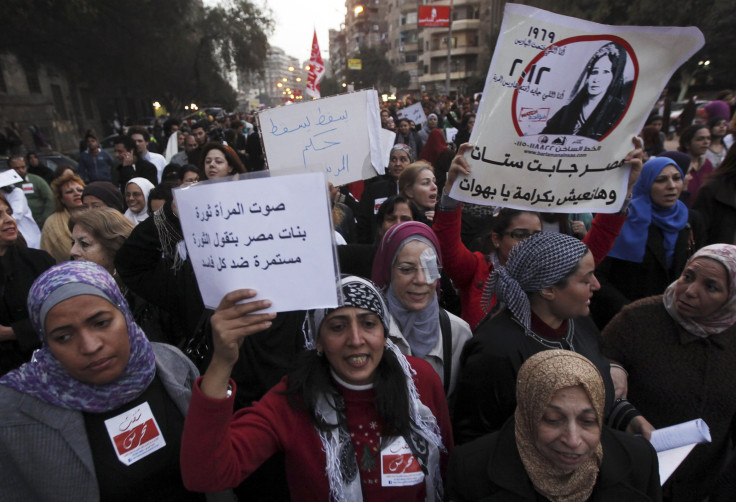Attacks On Female Activists In Egypt Go Unpunished

A culture of impunity surrounding sexual violence against women in Egypt is leading to an escalation of such crimes and the suppression of activism among women, human rights group Amnesty International has said.
The majority of attacks, carried out by groups of men, have targeted female activists in and around Tahrir Square in Cairo, where mass protests over a lack of democratic freedoms have erupted in recent months against the administration of President Mohammed Morsi, who took office last June.
“Women are attacked alone or separated from friends by a group of men that quickly escalates in number. The survivors are dragged inside the mob as hands and sometimes weapons violate their bodies and the men attempt to remove their clothes,” read an Amnesty press release, describing survivors’ and witnesses’ accounts of the attacks.
These acts of violence are rarely reported due to a systemic bias against women among Egyptian law enforcement and a cultural stigma against the survivors of sexual assault.
Amnesty criticized the Egyptian Constitution for failing to specifically address gender-based discrimination, which the group said has contributed to an atmosphere that allows for such attacks to occur.
“Given the stigmatization attached to harassment and sexual assaults against women and the attitudes of law enforcement officials, many cases go unreported. Those who do try and press charges face a wall of indifference and even blame and contempt in their struggle for justice,” said Hassiba Hadj Sahraoui, Amnesty’s Deputy Director for the Middle East and North Africa, in a statement.
Activists and survivors told Amnesty that the attacks appeared to be aimed at discouraging women from participating in public protests and weakening the opposition.
“The tactics used by mobs in recent protests is a harrowing reminder of the sexual harassment and assault against women protesters under ousted president Hosni Mubarak,” said Hadj Sahraoui.
“Women have been a vital part of protests and have sacrificed much in their fight for freedom and social justice,” she added. “Egyptian authorities need to honor their activism and pull out all stops to address endemic violence against women in all echelons of society.”
Amnesty called upon President Morsi to speak out against the attacks, while the Islamist leader continues to be criticized by opposition activists for failing to promote democratic protections, such as for women’s rights.
“Horrific, violent attacks on women including rape in the vicinity of Tahrir Square demonstrate that it’s now crucial President Morsi takes drastic steps to end this culture of impunity and gender-based discrimination, and for all political leaders to speak out,” said Hadj Sahraoui.
“Impartial, thorough investigations are vital to determine whether these mob attacks are coordinated by state or organized non-state actors and ensure perpetrators are brought to justice,” she added.
© Copyright IBTimes 2025. All rights reserved.




















